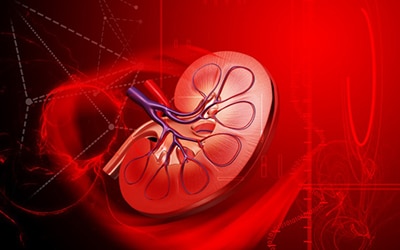+918045132186

This is your website preview.
Currently it only shows your basic business info. Start adding relevant business details such as description, images and products or services to gain your customers attention by using Boost 360 android app / iOS App / web portal.
Description
What are kidneys & how do the kidneys work? The kidneys are two bean-shaped organs, each about the size of a fist. They are located just below the rib cage, one on each side of the spine. Every day, the two kidneys filter about 120 to 150 quarts of blood to produce about 1 to 2 quarts of urine, composed of wastes and extra fluid. The body takes nutrients from food and converts them to energy. After the body has taken the necessary things from food, waste products are left behind in the bowel and in the blood. The kidneys and urinary system keep chemicals, such as potassium and sodium, and water in balance, and remove a type of waste, called urea, from the blood. Urea is produced when foods containing protein, such as meat, poultry, and certain vegetables, are broken down in the body. Urea is carried in the bloodstream to the kidneys. Two kidneys, a pair of purplish-brown organs, are located below the ribs toward the middle of the back. Their function is to: Remove liquid waste from the blood in the form of urine Keep a stable balance of salts and other substances in the blood Produce erythropoietin, a hormone that aids the formation of red blood cell Release calcitriol, the active form of vitamin D, which helps maintain calcium for bones and for normal chemical balance in the body Regulate blood pressure The kidneys remove urea from the blood through tiny filtering units called nephrons. Each nephron consists of a ball formed of small blood capillaries, called a glomerulus, and a small tube called a renal tubule. Urea, together with water and other waste substances, forms the urine as it passes through the nephrons and down the renal tubules of the kidney. Renal Function and Tests performed to check the status of kidneys: Renal function, in nephrology, is an indication of the state of the kidney and its role in renal physiology Analysis of blood and urine samples can be essential for the evaluation of kidney (renal) function. The following are some of the basic renal function tests which can be done to evaluate the proper functioning of kidney: Blood urea nitrogen (BUN) provides a rough measurement of the glomerular filtration rate, the rate at which blood is filtered in the kidneys. Urea is formed in the liver as an end product of protein metabolism and is carried to the kidneys for excretion. Nearly all kidney diseases cause inadequate excretion of urea, elevating BUN levels in the blood. (Other causes of high BUN levels include gastrointestinal bleeding and steroid treatment.) It can be done to determine the amount of urea nitrogen in the blood. Creatinine is a breakdown product of creatine, an important component of muscle. The production of creatinine depends on muscle mass, which varies very little. Creatinine is excreted exclusively by the kidneys, and its level in the blood is proportional to the glomerular filtration rate. The serum creatinine level (serum is the clear liquid that remains after whole blood has clotted) provides a more sensitive test of kidney function than BUN because kidney impairment is almost the only cause of elevated creatinine. It can also be measured with a urine test. Creatinine clearance rate determines how efficiently the kidneys are clearing creatinine from the blood and serves as an estimate of kidney function. For renal function test, urine and serum levels of creatinine are measured, as well as the volume of urine excreted over a 24-hour period. The creatinine clearance rate is then calculated and expressed as the volume of blood, in milliliters, that can be cleared of creatinine in 1 minute. A low creatinine clearance value indicates abnormal kidney function. It requires both a urine and blood sample. Estimated Glomerular Filtration Rate (eGFR) is a test used to check how well the kidneys are working. Specifically, it estimates how much blood passes through the glomeruli each minute. Glomeruli are the tiny filters in the kidneys that filter waste from the blood. The GFR test is recommended for people with chronic kidney disease. It is also recommended for persons who may get kidney disease due to: Diabetes Family history of kidney disease Frequent urinary tract infections Heart disease High blood pressure Urinary blockage


